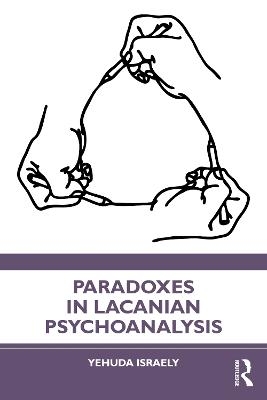
Paradoxes in Lacanian Psychoanalysis
Routledge (Verlag)
978-1-032-14084-1 (ISBN)
Building on Freud’s and Lacan’s own work in resolving paradoxes, Yehuda Israely considers psychic distress, and its amelioration, by means of the study and clarification of the many life situations that can be described as paradoxical. Among the paradoxes examined in this book are the nature of longing (the object’s presence in its absence), the wholeness of the broken heart (the subject’s existence in relation to the lack that defines her or him), drives (the more you feed it, the hungrier it gets) and the pangs of conscience (the righteous suffer). Israely’s innovative approach considers several questions which can be used to orient treatment and focuses on shedding the erroneous beliefs and assumptions that can lead to dead ends. Paradoxes in Lacanian Psychoanalysis also explores those paradoxes – involving anxiety, perplexity, wonder and creativity – that cannot and are not meant to be resolved.
This fascinating book will be essential reading for Lacanian psychoanalysts in practice and in training, and for psychoanalysts and psychotherapists of other theoretical backgrounds who are interested in understanding the nature of paradoxes.
Yehuda Israely is a clinical psychologist, psychoanalyst and author based in Israel. He is Director of the Moebius Institute in Tel-Aviv, member of the Tel-Aviv Forum of the International Forums of the Lacanian Field and his previous publications include Lacanian Treatment: Psychoanalysis for Clinicians (Routledge).
Introduction: Paradox as a contradiction due to a mistaken assumption
Chapter 1: The paradox of existence
Chapter 2: The paradox of being – the subject exists under the condition of its lack or "There is nothing more whole than a broken heart".
Chapter 3 All is foreseen, and freedom of choice is granted – the paradox of fate versus free choice (Babylonian Talmud, Pirkey Avot, 15:3)
Chapter 4 Putting the subject into the picture
Chapter 5 Paradoxes resulting from choosing one physical paradigm which are solved by choosing another
Chapter 6 Dimensions
Chapter 7 The dimension of time – afterwardsness
Chapter 8 The paradox of the act
Chapter 9 Paradoxes without a solution
| Erscheinungsdatum | 04.01.2022 |
|---|---|
| Zusatzinfo | 16 Halftones, black and white; 16 Illustrations, black and white |
| Verlagsort | London |
| Sprache | englisch |
| Maße | 156 x 234 mm |
| Gewicht | 181 g |
| Themenwelt | Geisteswissenschaften ► Psychologie ► Psychoanalyse / Tiefenpsychologie |
| Medizin / Pharmazie ► Medizinische Fachgebiete ► Psychiatrie / Psychotherapie | |
| ISBN-10 | 1-032-14084-4 / 1032140844 |
| ISBN-13 | 978-1-032-14084-1 / 9781032140841 |
| Zustand | Neuware |
| Informationen gemäß Produktsicherheitsverordnung (GPSR) | |
| Haben Sie eine Frage zum Produkt? |
aus dem Bereich


